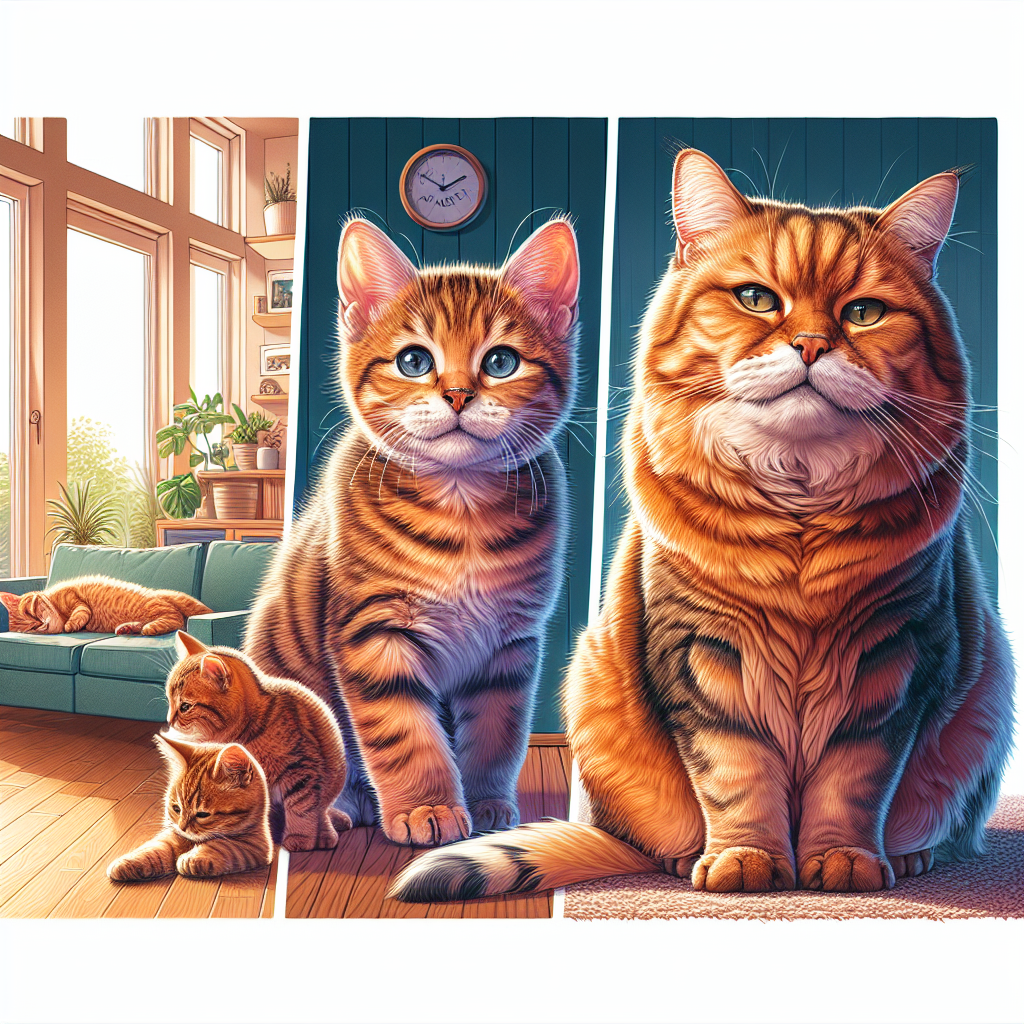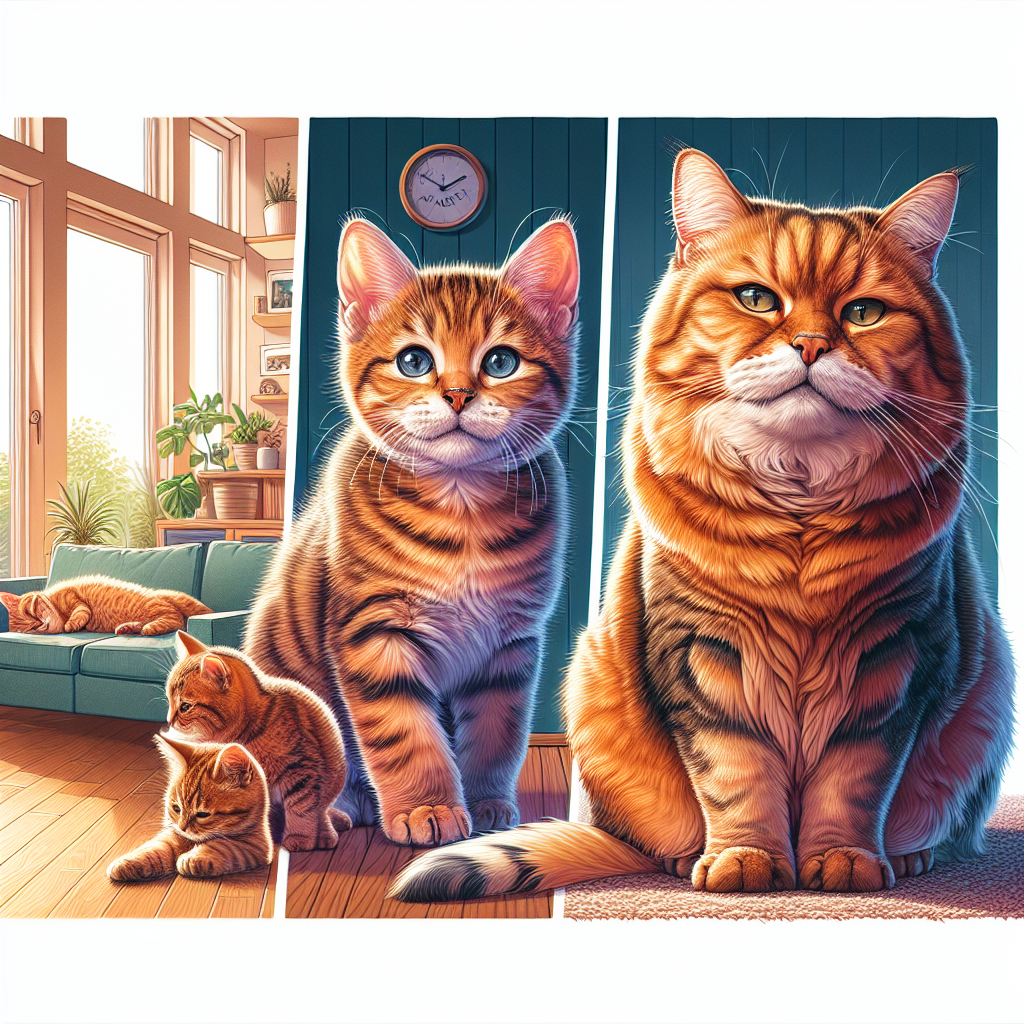Imagine having a furry and affectionate companion by your side for many years to come. In this article, you’ll discover the lifespan of a tabby cat and gain valuable insights into how to ensure they live a long and happy life. From their playful antics in their early years to their relaxed and contented senior days, understanding the average lifespan of a tabby cat will provide you with essential information to care for this beloved, four-legged member of your family. So, let’s uncover the fascinating world of tabby cats and explore the timeline of their remarkable lives.
Factors Affecting the Lifespan of a Tabby Cat
Genetics
Just like humans, genetics play a significant role in determining the lifespan of a tabby cat. Certain genetic factors can predispose them to certain health conditions or diseases that may affect their overall lifespan. Some cats may inherit a stronger immune system, while others may have genetic markers that make them more prone to certain illnesses. It’s important to consider the genetic background of a tabby cat when estimating their potential lifespan.
Diet and Nutrition
Proper diet and nutrition are vital in extending the lifespan of a tabby cat. A well-balanced diet that provides all the necessary nutrients, vitamins, and minerals is crucial for their overall health. Feeding them high-quality cat food that meets their specific dietary needs is essential in preventing obesity and other health problems. It’s important to consult with a veterinarian to determine the right diet plan and portion sizes for your tabby cat.
Exercise and Activity Level
Regular exercise and physical activities are not only important for maintaining a healthy weight, but also for ensuring good cardiovascular health and strengthening their muscles and bones. Keeping your tabby cat active can help prevent obesity and reduce the risk of developing various health issues. Engaging in interactive play sessions and providing them with toys and scratching posts can help keep them physically and mentally stimulated.
Access to Healthcare
One of the most crucial factors that can significantly impact the lifespan of a tabby cat is access to proper healthcare. Regular veterinary check-ups, vaccinations, and preventive care can greatly contribute to their overall well-being. By detecting any health issues early on, your veterinarian can provide timely treatments and interventions, which can help prolong their life. It’s important to establish a good relationship with a trusted veterinarian and ensure that your tabby cat receives all the necessary medical care.
Living Environment
The living environment of a tabby cat can also influence their lifespan. A stress-free, safe, and comfortable living space is essential for their overall health and well-being. Providing them with a cozy and clean living environment, free from potential hazards or toxins, can help prevent accidents and injuries. Additionally, creating a stimulating environment that includes scratching posts, hideouts, and climbing structures can enrich their lives and promote their overall happiness.
Average Lifespan of a Tabby Cat
Domestic Short-haired Tabby Cats
Domestic short-haired tabby cats, being a mix of various breeds, can have an average lifespan of around 12 to 16 years. However, it’s important to note that this is just an average and individual cats may live longer or shorter lives depending on various factors such as genetics, diet, and overall health.
Mixed Breed Tabby Cats
Mixed breed tabby cats also have a similar average lifespan as domestic short-haired tabbies, ranging from 12 to 16 years. Like any other cat, their genetics, diet, exercise, healthcare, and living environment play a significant role in determining their individual lifespan.
Purebred Tabby Cats
Purebred tabby cats, like all purebred cats, can have a wide range of lifespans depending on their breed and genetic predispositions. Some purebred tabby cats may have an average lifespan similar to domestic short-haired or mixed breed tabbies, while others may have shorter or longer lifespans. It’s essential to consider the specific breed characteristics and potential health issues associated with purebred tabby cats.

Common Health Issues in Tabby Cats
Obesity
Obesity is a common health issue in tabby cats, especially those with a sedentary lifestyle and a poor diet. Obesity can lead to various health complications, including diabetes, arthritis, and heart disease. Maintaining a healthy weight through a balanced diet, portion control, and regular exercise is key in preventing obesity in tabby cats.
Dental Problems
Dental problems, such as periodontal disease and tooth decay, can significantly impact a tabby cat’s overall health and lifespan. Poor dental hygiene can lead to painful gum infections, tooth loss, and even systemic infections. Regular brushing of their teeth, providing dental treats or toys, and routine dental check-ups can help prevent dental problems and promote good oral health.
Heart Disease
Tabby cats, like any other breed, can be susceptible to heart disease. Hypertrophic cardiomyopathy (HCM) is one of the most common heart conditions found in cats and can affect tabbies as well. Routine veterinary check-ups and monitoring for any signs of heart disease can help detect and manage the condition early on.
Kidney Disease
Chronic kidney disease (CKD) is another health issue that can affect tabby cats as they age. It is a progressive condition that can result in kidney failure if not properly managed. Regular bloodwork, monitoring of hydration levels, and a specific kidney-friendly diet can help slow the progression of CKD and improve the cat’s quality of life.
Diabetes
Tabby cats, especially those who are overweight, are at an increased risk of developing diabetes. Diabetes can cause various health issues if left untreated, such as weight loss, increased thirst, and urinary problems. Managing their weight, providing a balanced diet, and monitoring their blood sugar levels are essential in preventing and managing diabetes in tabby cats.
Cancer
Cancer can affect tabby cats just like any other cat breed. Certain types of cancers, such as lymphoma and mammary cancer, are more commonly seen in cats. Regular check-ups, prompt detection of any abnormal lumps or masses, and timely veterinary intervention can help in the early diagnosis and treatment of cancer.
Signs of Aging and Senior Care for Tabby Cats
Decreased Activity Levels
As tabby cats age, it’s normal for them to become less active and spend more time sleeping or resting. However, sudden and significant changes in their activity levels may indicate underlying health issues. It’s important to monitor their activity levels and consult with a veterinarian if there are any concerns.
Changes in Appetite
Senior tabby cats may experience changes in their appetite, including a decrease or loss of appetite. Dental issues, loss of sense of smell, or certain medical conditions can contribute to changes in their eating habits. It’s essential to provide them with a diet that is appropriate for their age and health condition and consult with a veterinarian if there are any significant changes in appetite.
Weight Loss or Gain
Unexplained weight loss or weight gain in senior tabby cats should not be ignored, as it can be a sign of an underlying health issue. Regular monitoring of their weight and consultation with a veterinarian can help identify any problems and ensure their nutritional needs are being met.
Joint Problems
Arthritis and other joint problems are commonly seen in aging tabby cats. Signs of joint problems may include difficulty moving or jumping, stiffness, and reluctance to engage in physical activities. Providing them with comfortable bedding and considering joint supplements or medications can help alleviate discomfort and improve their quality of life.
Dental Issues
As tabby cats age, they may be more prone to dental problems, such as tooth decay or gum disease. Regular dental check-ups and professional cleanings are important in maintaining their oral health. Additionally, providing them with soft or specially formulated cat food can help prevent further dental issues.
Changes in Sleep Patterns
Just like humans, tabby cats may experience changes in their sleep patterns as they age. They may sleep more throughout the day and have a harder time settling at night. Providing them with quiet and comfortable sleeping areas can help ensure they get the rest they need.
Regular Veterinary Check-ups
Regular veterinary check-ups are crucial for senior tabby cats. These check-ups allow the veterinarian to monitor their overall health, detect any early signs of illness, and provide appropriate interventions or treatments.
Proper Nutrition and Diet
Senior tabby cats have specific nutritional needs that should be met to ensure their health and well-being. Providing a balanced diet that is appropriate for their age, considering any underlying health conditions, and consulting with a veterinarian for dietary recommendations is essential.
Providing Comfortable Environment
Creating a comfortable environment for senior tabby cats is important in promoting their happiness and well-being. This includes providing them with cozy bedding, warm and quiet areas for resting, and easy access to litter boxes, food, and water.
Tips for Increasing a Tabby Cat’s Lifespan
Balanced Diet and Nutrition
Feeding your tabby cat a balanced diet that meets their specific nutritional needs is essential in promoting their health and increasing their lifespan. Consult with a veterinarian to determine the appropriate diet plan and portion sizes for your tabby cat.
Regular Exercise and Mental Stimulation
Keeping your tabby cat physically and mentally stimulated through regular exercise and play sessions can help prevent obesity, promote healthy muscle and bone development, and enhance their overall well-being.
Spaying or Neutering
Spaying or neutering your tabby cat can contribute to their overall health and increase their lifespan. It helps prevent certain health issues, such as reproductive organ-related diseases, and reduces the risk of certain cancers.
Preventing Accidents and Injuries
Creating a safe living environment for your tabby cat is crucial in preventing accidents and injuries. Remove any potential hazards, such as toxic plants and dangerous household items, and ensure that the living space is secure to avoid escapes or falls.
Vaccinations and Preventive Care
Keeping your tabby cat up to date on vaccinations and providing them with regular preventive care, such as flea and tick prevention, can help prevent various diseases and increase their lifespan.
Dental Hygiene
Maintaining good dental hygiene is vital for your tabby cat’s overall health. Regular brushing of their teeth and providing dental treats or toys can help prevent dental problems and promote good oral hygiene.
Regular Vet Check-ups
Routine veterinary check-ups are essential in monitoring your tabby cat’s health, detecting any early signs of illness, and providing appropriate care and interventions. Regular health screenings, vaccinations, and preventive care can greatly contribute to their overall lifespan.
Conclusion
Factors such as genetics, diet, exercise, access to healthcare, and living environment all play significant roles in determining the lifespan of a tabby cat. By understanding these factors and providing appropriate care, you can help ensure that your tabby cat lives a long, healthy, and happy life. Regular veterinary check-ups, a balanced diet, regular exercise, and a safe and comfortable environment are key components in increasing their lifespan. Remember, your tabby cat relies on you for their well-being, so make sure to provide them with the love, attention, and care they deserve.

